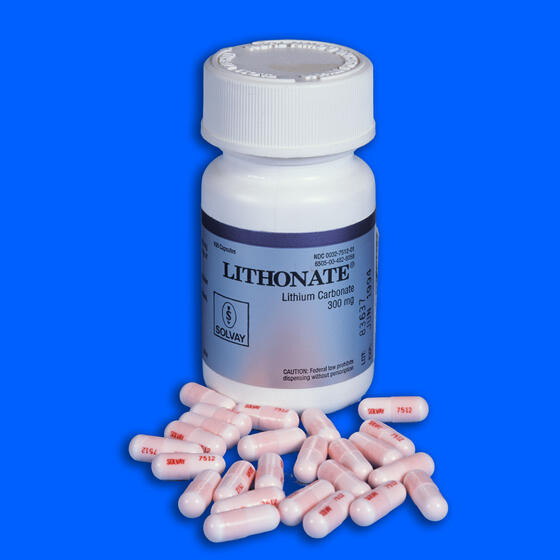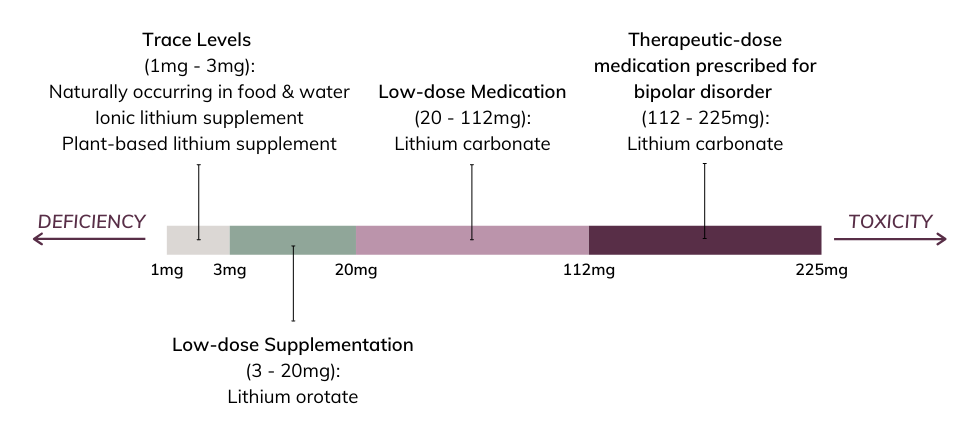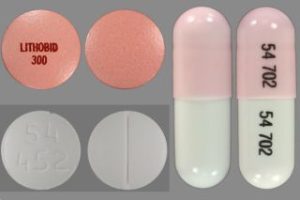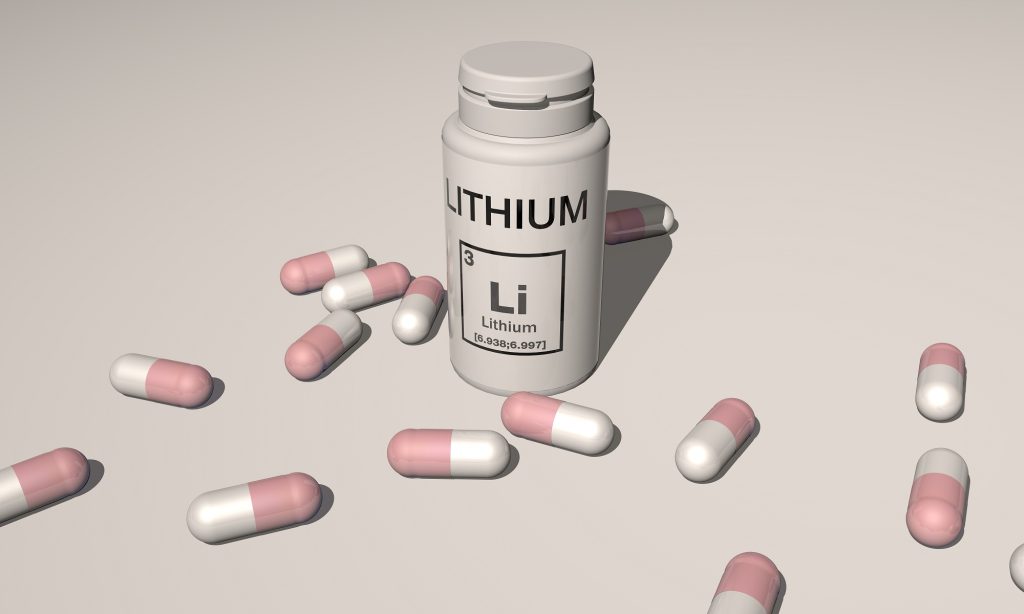This article will provide you with the most important information about this medication that you should know. We will also discuss specific concerns about lithium and pregnancy, administering lithium, how lithium is available, and risks for taking lithium for long periods.
Contents
Understanding Lithium

Lithium is a medication that is used to treat bipolar disorder and depression. It can also be used to prevent mania in people who have bipolar disorder. This medication works by altering the levels of serotonin and norepinephrine in the brain. Thus it helps to stabilize moods in people with bipolar disorder and depression.
Most Important Information I Should Know About Lithium
Before taking lithium, it is important to understand the most important information about this medication. Some key points to remember include:
- Can cause serious side effects, including but not limited to: confusion, delirium, seizures, and coma.
- May increase the risk of fetal death or birth defects if taken during pregnancy.
- Might increase the risk of suicidal thoughts or actions in children, adolescents, and young adults within the first few months of treatment.
- The liquid form of this medication contains alcohol and can cause serious side effects if taken with certain medications such as disulfiram (Antabuse) or metronidazole (Flagyl).
Things Should I Discuss With My Doctor Before Taking Lithium
Before taking lithium, it is important to discuss the following things with your healthcare provider. If you:
- Are pregnant or plan on becoming pregnant.
- Have kidney problems.
- Are taking any other medications, including over-the-counter medications and supplements.
- Have a history of seizures or medical conditions that could increase your risk for seizures.
- Be sure to tell your healthcare provider about all of the medications you are taking, including over-the-counter and herbal medicines.
NOTE: Lithium may increase the risk of fetal death or birth defects if taken during pregnancy. If you are pregnant or become pregnant while taking it, you should notify your healthcare provider immediately.
Administering Lithium

How Lithium Is Available
Lithium is available as a prescription medication from pharmacies, available in both tablet and liquid form. It can also be purchased over-the-counter at some stores.
How Should I Take Lithium
Lithium is usually taken by mouth, usually two or three times a day. However, your healthcare provider may prescribe a different dose or schedule.
What Happens If I Miss A Dose Of Lithium
If you miss a dose of lithium, take it as soon as you remember. However, if it is close to the time for your next dose, skip the missed dose and continue with your regular schedule. Do not take double the amount to make up for a missed dose.
NOTE: If you overdose on lithium, call your local poison control center or seek immediate medical attention.
What Should I Avoid While Taking Lithium
There are several things that you should avoid while taking it. These include:
- Alcohol and any other medications that contain alcohol, such as cough syrup or liquid cold medicines
- Disulfiram (Antabuse) or metronidazole (Flagyl), which may cause serious side effects when taken with lithium
- Some over-the-counter products that contain ibuprofen
How Much Time It Takes For Lithium To Work
Lithium usually takes up to four weeks to start working. However, it may take longer for some people. Do not stop taking it because you think it is not working before talking with your healthcare provider.
How Long Should I Take Lithium
Lithium should be taken for as long as your healthcare provider recommends. Do not stop taking it without talking to your healthcare provider first.
Evaluating Lithium

Like all medications, there are several possible side effects of lithium. However, not everyone who takes it will experience these side effects. Some people may also experience more severe or long-lasting symptoms than others. It is important to contact your healthcare provider immediately if you notice any serious or unusual symptoms.
Common Side Effects Of Lithium
Some common side effects of it include:
- Nausea, diarrhea, vomiting
- Excessive thirst or urination
- Tremors in the hands and fingers (usually go away with continued treatment)
- Lack of coordination
- Dizziness or drowsiness
Rare/Serious Side Effects Of Lithium
Some rare but serious side effects of it include:
- Muscle weakness, unsteadiness when walking or standing, fainting
- Severe muscle cramps (usually in the legs) and decreased ability to move the arms and legs
- Frequent or painful urination, changes in urine color
- Extreme thirst, increased appetite, urination, or confusion (may be signs of too much lithium)
- Seizures or coma
- Yellow skin and eyes (jaundice)
- Changes in vision (e.g., seeing double)
- Shortness of breath, swelling of the ankles and feet, increased heart rate
- Skin rash or itching
Risks For Taking Lithium For Long Periods
There are some risks associated with taking it for long periods. These include:
- Weight gain
- Excessive thirst and urination can lead to dehydration
- Drowsiness or confusion, which can increase the risk of falls
- Loss of hair on the head, but increased growth on other parts of the body (hirsutism)
- Sensitivity to sunlight, which can cause a rash or sunburn
- Depression and other mood changes
NOTE: It is important to talk with your healthcare provider about how long you should take lithium. Generally, it is taken for long periods. However, there may be times when it is not safe or appropriate to continue taking this medication. Your healthcare provider can help you weigh the risks and benefits of continuing treatment with it.
Possible Drug Interactions With Lithium
Some drugs may increase the risk of side effects if taken with lithium. It is important to discuss the following medications with your healthcare provider before taking them while you are receiving treatment:
- Angiotensin-converting enzymes (ACE) inhibitors, such as ramipril (Altace) and lisinopril (Prinivil, Zestril)
- Nonsteroidal anti-inflammatory drugs (NSAIDs), such as ibuprofen (Advil, Motrin IB) and naproxen sodium (Aleve)
- Cyclosporine (Neoral, Sandimmune), which is used to suppress the immune system
- Thiazide diuretics, such as hydrochlorothiazide (HCTZ) (Dyazide, Maxzide)
- Theophylline (Uniphyl, Theo-24), a bronchodilator for asthma
- Tacrolimus (Prograf), an immunosuppressant used to prevent organ rejection after transplant surgery
- Carbamazepine (Tegretol, Carbatrol), phenobarbital, and phenytoin (Dilantin, Phenytek), which are all anticonvulsants
- Pentoxifylline (Trental), which is used to improve circulation
- Atorvastatin (Lipitor) and other statins, such as simvastatin (Zocor)
- Beta-blockers, such as atenolol (Tenormin), metoprolol tartrate (Lopressor), and propranolol (Inderal)
- Digoxin (Lanoxin), a heart medication
- Acetazolamide (Diamox), is used to treat glaucoma, epilepsy, and swelling of the brain or lungs. It may also be used with lithium to prevent kidney stones
- Corticosteroids, such as prednisone
- Calcium channel blockers, such as diltiazem (Cardizem), nifedipine (Procardia), and verapamil (Calan)
- Demeclocycline (Declomycin), which is used to treat high levels of calcium in the urine
If you are taking any of these medications, it is important to talk with your healthcare provider before starting lithium treatment. He or she can help you weigh the risks and benefits of taking both medications and decide if there is a safer way to treat your condition.
Alternatives To Lithium
If you are unable to take lithium or if the side effects are too severe, your healthcare provider may recommend other medications to treat your condition. Some of these alternatives include:
- Carbamazepine (Tegretol, Carbatrol), phenobarbital, and phenytoin (Dilantin, Phenytek), which are all anticonvulsants
- Valproic acid (Depakote, Depakene) and divalproex sodium (Depakote ER), are also helpful to treat seizures
- Gabapentin (Neurontin), an anticonvulsant that is also helpful to relieve pain from shingles
- Olanzapine (Zyprexa), quetiapine (Seroquel), risperidone (Risperdal), and ziprasidone (Geodon) are antipsychotics that are helpful to treat bipolar disorder
- Lamotrigine, which is an anticonvulsant that is used to treat seizures and bipolar disorder
- Amitriptyline, an antidepressant that may be used off-label for some people with bipolar disorder
- Topiramate (Topamax), an anticonvulsant that is also used to prevent migraine headaches
- Benzodiazepines, such as alprazolam (Xanax), lorazepam (Ativan), and temazepam (Restoril)
- Antipsychotics, such as risperidone (Risperdal) or olanzapine
- Antidepressants, including selective serotonin reuptake inhibitors (SSRIs), such as fluoxetine (Prozac) and sertraline (Zoloft), or serotonin-norepinephrine reuptake inhibitors (SNRIs), such as venlafaxine (Effexor XR)
If you are considering any of these medications, be sure to talk with your healthcare provider about the risks and benefits.
Special Considerations For People Taking Lithium
If you are taking lithium, it is important to keep all of your healthcare appointments. So that your healthcare provider can monitor you closely and make sure the medication is working well for you. Your healthcare provider will likely want to monitor several factors in your blood during treatment, including:
- Calcium levels
- Kidney function
- Liver function
- Salt and water balance
In addition, your healthcare provider will want to check your thyroid gland with a blood test before starting lithium treatment and regularly during treatment. Lithium can cause the thyroid gland to produce too much hormone (hyperthyroidism) or not enough hormone (hypothyroidism).
If you have diabetes, are over 50 years of age, or have a family history of thyroid disease, your healthcare provider may want to check your thyroid gland more often during treatment. In addition, keep in mind that certain medications can affect the way lithium works in your body. And how well you can take measures to remove it from your body.
Summary Of Black Box Warnings
The U.S. Food and Drug Administration (FDA) has issued a black box warning for lithium due to the risk of death from heart problems. The FDA advises that lithium should be used only when other medications have not been effective or are not tolerated.
The black box warning also notes the following risks associated with lithium use:
- Kidney damage, which can lead to kidney failure
- Central nervous system toxicity, including seizures
- Encephalopathy (a disorder of the brain), can cause changes in mental status and even coma
- Skin reactions, such as Stevens-Johnson syndrome (a life-threatening skin reaction)
Lithium is a powerful medication and one should only take it under the close supervision of a healthcare provider. It is important to discuss all potential risks and benefits of lithium treatment with your provider before starting this medication.
DISCLAIMER: The information in this article is not a substitute to replace the advice of a physician. This article is for educational purposes only and does not constitute medical advice. Please consult your doctor before starting or stopping any medication or supplement. Especially if you have known health issues that may increase your risk of side effects from lithium, such as kidney disease, thyroid disease, or diabetes.
Experts’ Opinion On Lithium

While lithium is an effective treatment for bipolar disorder, there are some risks that come with its use. Some of the more serious risks include heart problems, seizures, and kidney failure. However, with close monitoring by a healthcare provider, the incidence of these risks can be low.
- “Lithium is one of the oldest and most effective treatments for bipolar disorder,” says Melissa P. DelBello, MD, MPH, director of the Mood Disorders Center at Cincinnati Children’s Hospital Medical Center in Ohio. “Like all medications used to treat bipolar and other psychiatric disorders, there is a risk profile that comes with using lithium.”
- “Lithium has been around for over 50 years and is one of the most researched medications in psychiatry,” agrees Gary Sachs, MD, director of the Bipolar Clinic and Research Program at Massachusetts General Hospital in Boston. “It is highly effective both as a mood stabilizer and preventative treatment for bipolar disorder.”
- “Lithium is still an important medication in treating many psychiatric conditions,” says Keith Humphreys, Ph.D., professor of psychiatry at Stanford University in California. “It is not a ‘wonder drug’ that works for everyone and has no side effects but it does have an appropriate place in treatment.”
Case Study
Mark is a 42-year-old man with bipolar disorder who underwent successful treatment with lithium for the past two years. He takes 300 mg of lithium carbonate per day and has not experienced any serious side effects.
“Lithium is an effective medication for many people with bipolar disorder,” says Dr. DelBello. “But it has risks and benefits, similar to all medications currently available for managing bipolar disorder.”
Mark’s healthcare provider checks his thyroid function every six months and orders blood tests for kidney function every three months. Mark is aware of the importance of going through these tests on schedule. As they are critical in monitoring any side effects that may occur due to lithium use. Mark is also mindful to increase his water intake during the summer since increased sweating can cause dehydration, which can lead to kidney damage in people taking lithium.”
While there are risks with using any medication,” says Dr. DelBello, “the benefits of properly dosed and monitored treatment with medications like lithium far outweigh those risks for most people.”
The Key Message
People with bipolar disorder who are considering taking lithium should talk to their doctor about the possible risks and benefits of treatment. It is important to have regular blood tests done to monitor any side effects that may occur due to lithium use. Close monitoring by a healthcare provider can minimize the risk of serious side effects. With proper care, lithium can be an effective treatment for bipolar disorder.
Conclusion
When used as directed, lithium can be an effective treatment for bipolar disorder. It is important to talk to your doctor about the possible risks and benefits of taking this medication. Risks include heart problems, seizures, kidney failure, and other side effects that may occur due to prolonged lithium use. Close monitoring by a healthcare provider can minimize these risks and help ensure the best possible outcome. As continual monitoring indicates the risks of lithium toxicity.
A Word From Therapy Mantra
Your mental health — Your psychological, emotional, and social well-being — has an impact on every aspect of your life. Positive mental health essentially allows you to effectively deal with life’s everyday challenges.
At TherapyMantra, we have a team of therapists who provide affordable online therapy to assist you with issues such as depression, anxiety, stress, workplace Issues, addiction, relationship, OCD, LGBTQ, and PTSD. You can book a free therapy or download our free Android or iOS app.


